Ha Noi, April 26 to May 9, 2018: A training workshop introducing eDNA (environmental DNA) and smartphone-based testing for the Swinhoe’s Giant Sotfshell Turtle (Rafetus swinhoei) , also known as Hoan Kiem turtle, took place at Dong Mo and Xuan Khanh lakes from April 26 to May 9, 2018. This project is a pilot initiative for increasing the ability to find Rafetus swinhoei, and is a joint collaboration by the Asian Turtle Program – Indo Myanmar Conservation (ATP), the Central Institute for Natural Resources and Environmental Studies (CRES) and the Wildlife Conservation Society – Vietnam program (WCS Vietnam). This 15-day event was led by Dr. Tracie Seimon, Molecular Scientist, Zoological Health Program of WCS, with technical assistance from Dr. Brian D. Horne, Freshwater Turtle and Tortoise Coordinator, Species Program, WCS.
Rafetus swinhoei, called respectfully by Vietnamese people as Hoan Kiem Turtle – considered the symbol of Ha Noi by many Vietnamese due to its legendary status, is the rarest turtle in the world with only four individuals now known (two in Vietnam and two in China). During the last fifteen years, the ATP has conducted extensive surveys to find additional animals in the wild and has successfully located the two known individuals in Vietnam, with the second only recently confirmed using eDNA in partnership with the Turtle Survival Alliance (TSA) and Washington State University. With both WCS and CRES now joining the search and with improvements in eDNA technology the hope is to refine a technique to allow more lakes and potential locations for the species to be rapidly surveyed.
eDNA stands for environmental DNA (Deoxyribonucleic acid a.k.a. ADN in Vietnamese) and is shed from organisms living in an environment. eDNA can be used as a forensic tool to detect rare species from environmental samples such as soil, water and air rather than directly from an individual organism. A new handheld molecular test kit to detect eDNA from water sample has been successfully developed by WCS, to search for cryptic endangered species, especially focusing on Hoan Kiem Turtle, Rafetus swinhoei. This new quick, portable and field-friendly platform for eDNA testing kit will bring new hope for finding more individuals of Hoan Kiem Turtle in the wild, and make the collection and testing of water samples easier by allowing eDNA testing directly at the water source.
The eDNA training workshop aimed to provide instruction to research conservationists from ATP, CRES and WCS, on how to use and adapt these new portable field kits to existing surveys. Additionally, it was also a chance for field validation of performance of the new technology before it is more widely implemented. Trainees spent 2 days in Ha Noi for instructional lectures, and another 13 days at Dong Mo and Xuan Khanh lakes to practice using the kit for collection and testing of water samples for Hoan Kiem Turtle. Unfortunately, none of the samples collected during this training tested positive. This could be explained by the high water temperatures, biological activity in the water or other factors affecting the genetic material in the water. However, through this training, collaborative spirit was enhanced through a coordinated team effort among the three organizations, with the ultimate goal finding more individuals of the worlds rarest turtle in the wild to allow conservaition of the species. The following sample collection and testing activities will be conducted again in December and January, when water temperature are lower, to optimize the opportunity of catching DNA of Hoan Kiem Turtles in Dong Mo and Xuan Khanh lakes.
For further information, please contact:
- Tim McCormack
Asian Turtle Program (ATP) – Indo-Myanmar Conservation (IMC)No. 1806, CT1, C14 Bac Ha Building, To Huu Street, Tu Liem District, Hanoi, Vietnam
Tel: 02 4 7302 8389
Email: tmccormack@asianturtleprogram.org
- Dr. Le Duc Minh
Central Institute for Natural Resources and Environmental Studies (CRES)
Vietnam National University (VNU), Hanoi
19 Le Thanh Tong Street, Hanoi, Vietnam
Tel: 02438262-932
Email: minh.le.cres@gmail.com
- Mr. Nguyen Van Long
WCS Vietnam
Email: nvlong@wcs.org,
Office phone: 02435149750
About ATP:
- The Asian Turtle Program was established in 1998 and incorporated into the Cleveland Metroparks Zoo/Cleveland Zoological Society’s Asia regional program in 2003, and merged into Indo-Myanmar Conservation (IMC) to extend greater scope for work in additional fields for example additional taxa, alternative livelihoods in 2014. The aim of ATP is to establish a safe and sustainable future for Asian turtles, and to ensure that no further turtle species become extinct in the region. ATP implements strategic interventions that directly contribute to the conservation of Asian turtles, helping to ensure efficient use of limited resources, as well as developing capacity, strengthening leadership, and ultimately effecting positive attitudinal and behavioral change within society.To know more about ATP, visit their website at http://www.asianturtleprogram.org/
About CRES:
- Since 1995, CRES has been a leading research and training center within Vietnam National University, Ha Noi (VNU). CRES’s mission is to conserve biodiversity and promote sustainable development in the country through research, training, and collaboration. Through its fruitful activities, CRES has also become an influential force in the promotion of environmental awareness. Internationally, CRES is a member of IUCN, the scientific authority of CITES Vietnam and partner of MAB Vietnam. Since its establishment, CRES has implemented and taken part in 4 national programs on environment and natural resources, 25 national level projects, 67 national cooperation projects, and 26 international cooperation projects; the Institute has also trained more than 500 scientists and managers on national environmental and natural resource issues.To know more about CRES, visit their website at http://www.cres.edu.vn/en/
About WCS:
- The Wildlife Conservation Society (WCS) saves wildlife and wild places worldwide through science, conservation action, education, and inspiring people to value nature. Over its proud 120 year history, WCS has significantly helped to advance wildlife conservation around the globe in partnership with governments and local communities. Currently, WCS has nearly 60 country offices worldwide, and the New York headquarters in the United States.WCS has worked in Vietnam since 2006 with government, non-governmental organizations, international agencies, civil society, and media partners to strengthen institutional capacity and commitment of key agencies to degrade, disrupt, and dismantle wildlife trafficking networks and reduce poaching pressure on wildlife populations. Our efforts have led to enhanced enforcement effectiveness through the successful arrest, prosecution, and conviction of wildlife criminals along the trade chains.To know more about WCS in Vietnam, visit their website at https://vietnam.wcs.org/.
Photo gallery
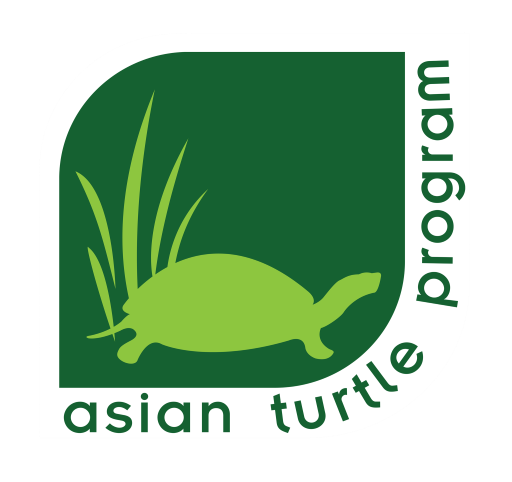
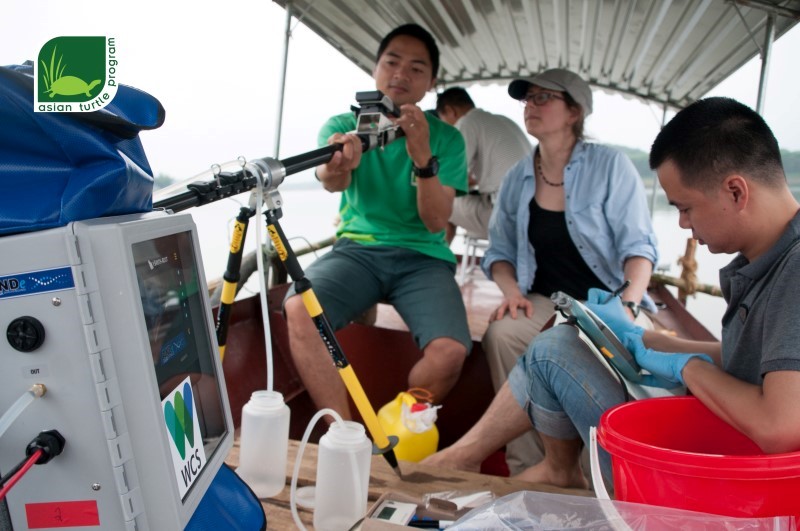
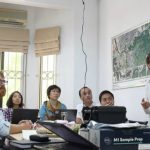
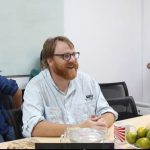
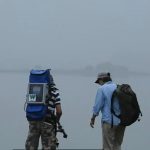
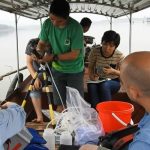
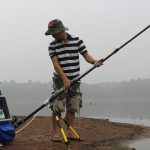
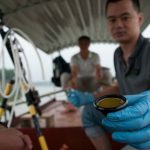
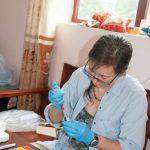
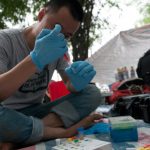
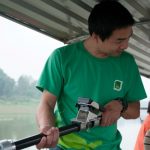
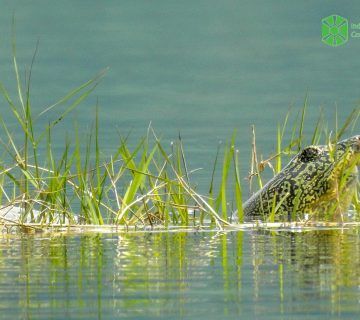
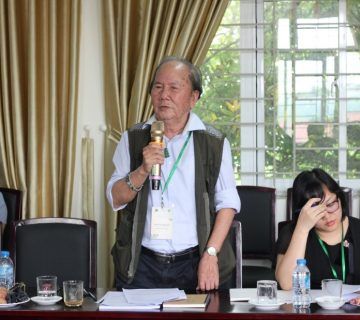
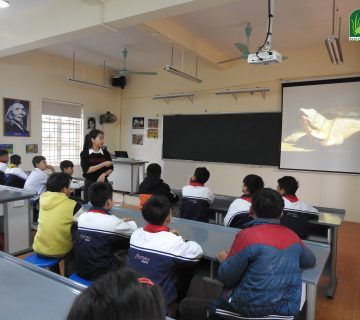
No comment